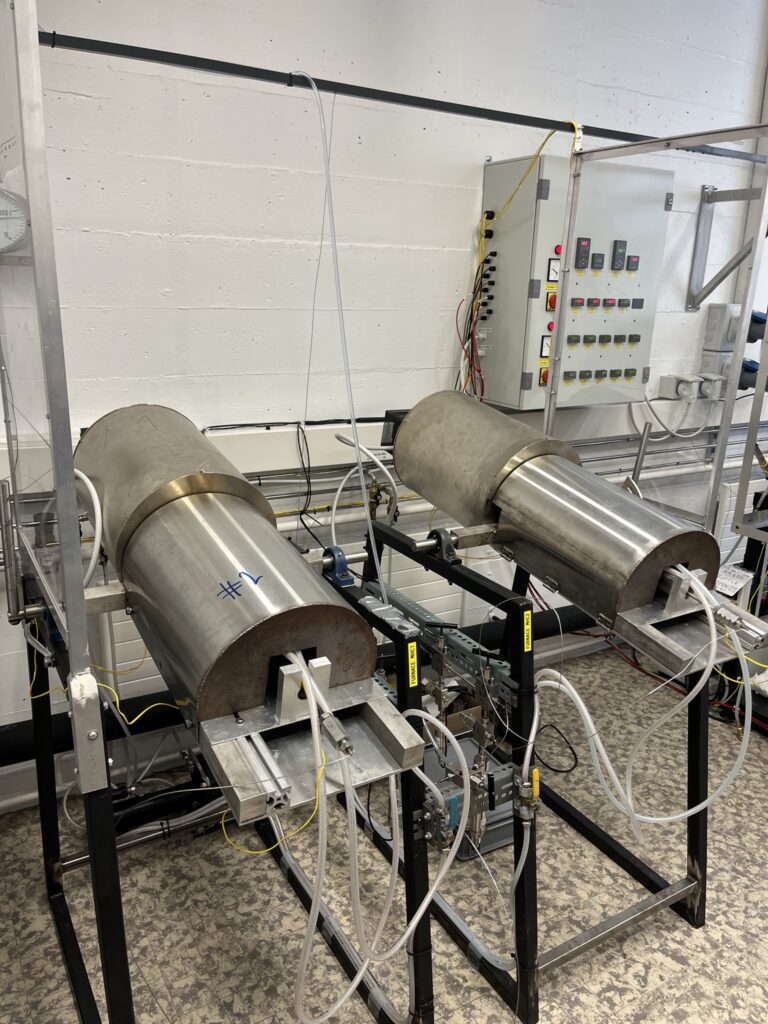
Constructed with the financial support of SNSF, Société Académique de Genève, Fondation Ernst et Lucie Schmidheiny, Fondation Ernest Boninchi and the University of Geneva.
The Molybdenum-Hafnium Carbide (MHC) pressure vessel apparatuses are our main workhorses for conducting experiments to study phase equilibrium at conditions characteristic of upper crustal magma reservoirs. We have two type of MHC pressure vessel apparatuses, an older design (Type-I), which requires less maintenance and is easier to use; and a prototype design (Type-II), which facilitates flexible and accurate control of redox conditions.
Below, the type-I apparatus is presented:


Performance Highlights:
- Achievable pressure and temperature up to 300 MPa and 1150 oC
- In-house built furnaces designed to minimize temperature gradients (≤12 oC over 2 cm capsule length)
- Pressure monitoring by digital pressure transducers, the calibration of which is regularly checked against an analogue Heise gauge on the main line.
- Water-cooled coupling to a cold steel vessel extension allowing for instant quenching
- The furnace-vessel assembly is on a rotating axis allowing rapid drop quenching as well as in situ fracturing of quartz during experiments for fluid inclusion synthesis. Dropping the capsule into a preheated vessel is also possible (e.g. for diffusion experiments).
- Set up for admixing precise amounts of hydrogen into the argon pressure medium to impose desired fO2 in hydrous capsule loads or prolong the lifetime of redox buffers (200 MPa pressure limit on this assembly)
- Pressure and temperature logging
- Steel and polycarbonate safety shielding
- Robust, pressure leak-free design
